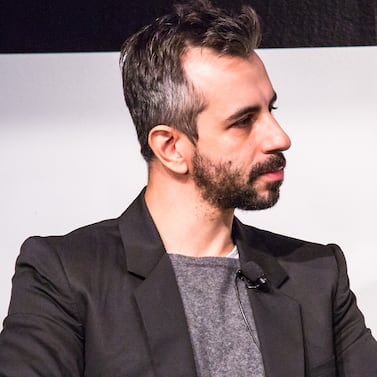
The Business of Fashion
Agenda-setting intelligence, analysis and advice for the global fashion community.

Agenda-setting intelligence, analysis and advice for the global fashion community.
Felix Capital, the venture capital firm whose investments include Farfetch, Peloton, and Highsnobiety announced Wednesday that it raised $600 million in new funds, doubling its capital under management to over $1.2 billion as it searches for the next wave of companies enabling more digital and sustainable lifestyles.
One area of focus will be web3, where Felix is looking to back new brands native to the ecosystem and companies that make it easier for average users to access blockchain-based platforms and products, according to founder Frederic Court.
The firm’s interest “is less about empowering existing brands to move onto blockchain but more about empowering new native brands to emerge on these platforms,” Court explained. He believes native brands will be more relevant to younger generations that are already spending much of their time on Discord and in gaming environments, where they may use their avatars to express themselves.
Felix was close to investing in NFT and virtual fashion label RTFKT, for instance, though the deal ultimately didn’t happen. Nike acquired RTFKT last year.
ADVERTISEMENT
Court noted that web3 is still in its early stages and waiting for the device or product that will open it up to fashion businesses.
“What really interests us is how we go from what I call B2G, which is ‘business to geek,’ to B2C [business to consumer] because it’s still a bit clunky,” he said. “The software is not so great. It’s full of acronyms. It doesn’t feel very safe. In many places, it feels like a get-rich-quick mentality.”
Even so, he and his partners at Felix believe it offers a new platform for creativity and entrepreneurship, much like the world wide web and mobile internet were before it.
The announcement of the new funds comes as many investors are pulling back amid rising interest rates and economic disruptions, with some notable exceptions. Andreessen Horowitz, for one, just raised $4.5 billion for its new crypto fund.
Court noted that Felix’s focus has always been on companies that play into the increasingly digitised lifestyles consumers are adopting across an array of industries. Despite the recent plunge in tech valuations, this shift isn’t slowing, in his view, and only accelerated with the pandemic. Times of turmoil can also be when great companies are made, he added, pointing to Farfetch’s launch during the 2008 recession.
Along with the new funds, Felix is also adding two new advisors: Maria Raga, chief executive of Depop; and Musa Tariq, chief marketing officer at GoFundMe. The firm plans to back 20 to 25 companies in Europe and occasionally North America in a variety of other industries over the next few years, with sustainability being another area of emphasis. Court pointed to the firm’s previous investments in electric mobility, such as the e-bike company VanMoof, as an example.
Felix Capital is part of a group of investors who, together, hold a minority interest in The Business of Fashion. All investors have signed shareholder’s documentation guaranteeing BoF’s complete editorial independence.
RTFKT hasn’t slowed down since Nike acquired the company last year. Its founders have a bold vision for their brand’s future as they seek to bridge the digital and physical worlds.
Brands like Adidas, Gucci and The Hundreds are finding the tokens are a great way to reward their superfans. But maintaining that loyalty can be hard work.
Clearco, which just secured $215 million in funding from Softbank, is at the forefront of a new investing model where brands get speedy financing in exchange for a share of future revenues.

Marc Bain is Technology Correspondent at The Business of Fashion. He is based in New York and drives BoF’s coverage of technology and innovation, from start-ups to Big Tech.
This month, BoF Careers provides essential sector insights to help beauty professionals decode the industry’s creative landscape.
Though e-commerce reshaped retailing in the US and Europe even before the pandemic, a confluence of economic, financial and logistical circumstance kept the South American nation insulated from the trend until later.
Discover the most exciting career opportunities now available on BoF Careers — including jobs from Hugo Boss, Banana Republic and House of CB.
The skincare-to-smoothie pipeline arrives.